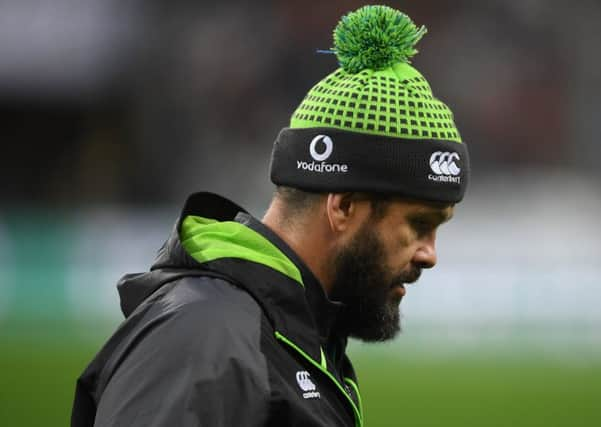Allan Massie: Nationality of coaches is irrelevant in Test rugby


Given how comments appended to articles on the BBC rugby website always include a lot of rather tedious stuff about qualification – “yah boo, you’ve got more imports than we do” etc – it’s odd that nobody ever seems to get worked up about non-national coaches. Yet the fact is that while New Zealand have a New Zealander as coach, South Africa a South African, and Australia an Australian, things are very different in the northern hemisphere, where England have an Australian head coach, Wales and Ireland a New Zealander and Italy an Irishman.
Only Scotland with Gregor Townsend and France with Jacques Brunel buck the trend, and while France have always, I think, had a French coach, Townsend’s predecessors were a New Zealander, an Australian and an Englishman.
Advertisement
Hide AdAdvertisement
Hide AdIt’s the same of course at club level. Nationality is irrelevant, just as it is in football, where almost all the leading managers in the English Premier League have English as, at best, their second language. Coaching and managing are regarded as transferable skills. No doubt they are. Even so, I would guess that you will have to live a long time to see the All Blacks being coached by anyone but a native New Zealander.
Meanwhile, Edinburgh having played their Champions Cup match against Newcastle Falcons a few hours after I write this, attention turns to Glasgow’s visit to Lyon. Obviously, having lost to Saracens in the opening round of the pool matches, Glasgow have to win this one, perhaps even with a bonus point, to retain interest in the competition. It is possible to qualify as one of the best second-placed teams even if you have suffered two defeats. Scarlets managed this last season. Since, however, Glasgow’s last pool game will be against Saracens away on 19 January, you would have to be very optimistic to think they might win at Allianz Park – even though it’s probable that Saracens will have first place secured by then. It may be, however, that the order of matches will work in Glasgow’s favour. After two rounds Saracens have nine points, Glasgow five, Cardiff Blues four, and Lyon zero. So Cardiff play Saracens in this back-to-back middle section and, if they lose both games, as is quite likely, their interest in the cup would surely be over before they come to Scotstoun on 13 January. Meanwhile Lyon, having already lost at home to Cardiff Blues and away to Saracens, may sense that any chance of qualifying for the knockout stage has already slipped away. It would be no great surprise if they concentrated on defending their position in the Top 14: they are currently fourth, but level on points with Racing 92 and with Bordeaux-Begles and Castres hot on their heels. The competition for the end-of-season knock-out stages is always intense in France. So Lyon may be content to let the Champions Cup go this season.
On the other hand, there are plenty of cases of a club with no chance of going further in the tournament nevertheless playing very effectively for pride – as indeed Glasgow did themselves last season when they beat Exeter Chiefs in the last round of the pool, despite having lost their previous five games.
Glasgow are in the happy position – an uncommon one for this time of the year – of having a shorter than usual injury list, only five players being listed as unavailable for selection.
Consequently Dave Rennie has almost an embarrassment of choice, in the back division anyway, and Ali Price, Huw Jones and Niko Matawalu will all be on the bench. If the game opens up in the second half, these three, coming on fresh, might run riot. First of all, however, it will as always be up to the forwards to establish control. It is perhaps a sign of Rennie’s confidence that club co-captain Ryan Wilson is being give the week off.